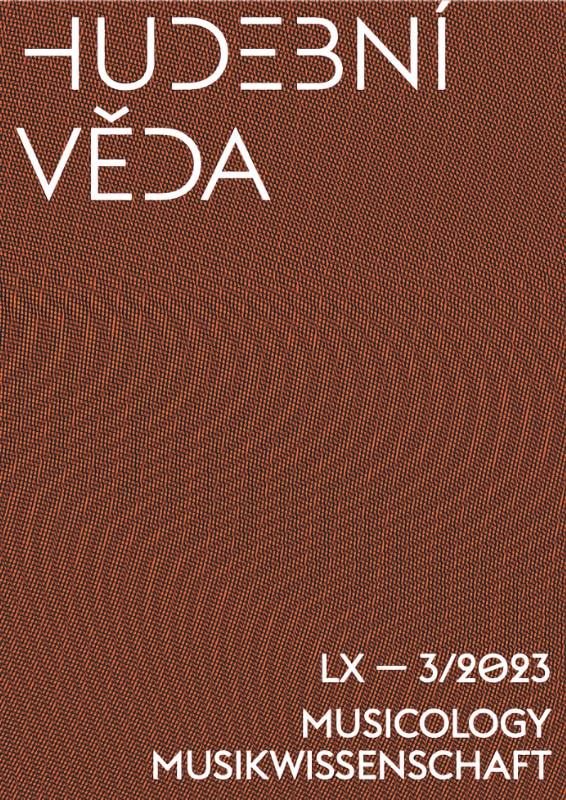Článek | Article
Autor:
Miloš Hons
Název:
Analýza jako prostředek porozumění hudebnímu dílu. Studie ke genezi tektonické analýzy Karla Janečka
Variantní název:
Analysis as a Key to Understanding a Musical Work. A Study on the Genesis of Karel Janeček’s Tectonic Analysis
Zdrojový dokument:
Hudební věda LX (2023), č. 3, s. 278–300.
DOI:
https://doi.org/10.54759/MUSICOLOGY-2023-0301
Trvalý odkaz:
https://kramerius.lib.cas.cz/uuid/uuid:9e378639-c30a-480b-ba93-44f8a127384f
České resumé:
Tektonická analýza Karla Janečka představuje jednu z nejnáročnějších analytických metod, která se odlišuje svými východisky a cíli. Kromě výzkumu hudební struktury a formy směřuje k poznání některých aspektů kompozičního myšlení tvůrce. Od předchozích metod se odlišuje také tím, že vychází z psychologicko-estetického působení znějící hudby a snaží se poodkrýt genezi díla formou dílčích rekonstrukcí kompozičního procesu. K tomuto analytickému přístupu se Janeček propracovával od studentských let, kdy se seznamoval s názory a spisy významných osobností české hudební teorie a vědy. Ty nejpodstatnější se týkají skladatele a teoretika Leoše Janáčka a psychologa, estetika a skladatele Otakara Zicha. Jejich názory na vnímání (percepci) a osvojování (apercepci) hudby je možné označit jako přímé zdroje systematiky tektoniky Karla Janečka. Kromě odhalování těchto vlivů je cílem této studie také zamyšlení nad problémem, jak může tektonická analýza přispět k osvojení a porozumění hudebnímu dílu.
English summary:
Karel Janeček’s tectonic analysis is one of the most elaborate analytical methods, set apart from others in terms of both its premises and its aims. Apart from its concern with the study of musical structure and form, it is likewise oriented towards probing into certain aspects of a composer’s creative thinking. Another aspect which distinguishes it from earlier methods is its prime focus on psychological-aesthetic effects of performed music, coupled with the aspiration to shed light on a musical work’s genesis by way of partial reconstructions of the compositional process. Janeček’s progress towards this analytical approach dates back to his student years when he became acquainted with the thoughts and writings of leading exponents of Czech music theory and scientific research. Most relevantly in that respect, he drew on theories evolved by the composer and scholar, Leoš Janáček, and the psychologist, aesthetician and composer, Otakar Zich. Their reasonings on the perception and apperception of music can indeed be regarded as authentic sources of the systemic groundwork of Karel Janeček’s tectonic theory. Apart from revealing these particular influences, the present study also purports to reflect on how tectonic analysis can contribute in the process of apperception and understanding of a musical work.
Klíčová slova:
tektonika; analýza; Karel Janeček; hudební percepce
Keywords:
tectonics; analysis; Karel Janeček; musical perception

